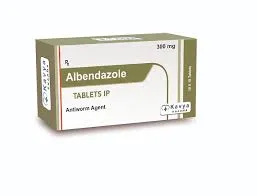- Afrikaans
- Albanian
- Amharic
- Arabic
- Armenian
- Azerbaijani
- Basque
- Belarusian
- Bengali
- Bosnian
- Bulgarian
- Catalan
- Cebuano
- Corsican
- Croatian
- Czech
- Danish
- Dutch
- English
- Esperanto
- Estonian
- Finnish
- French
- Frisian
- Galician
- Georgian
- German
- Greek
- Gujarati
- Haitian Creole
- hausa
- hawaiian
- Hebrew
- Hindi
- Miao
- Hungarian
- Icelandic
- igbo
- Indonesian
- irish
- Italian
- Japanese
- Javanese
- Kannada
- kazakh
- Khmer
- Rwandese
- Korean
- Kurdish
- Kyrgyz
- Lao
- Latin
- Latvian
- Lithuanian
- Luxembourgish
- Macedonian
- Malgashi
- Malay
- Malayalam
- Maltese
- Maori
- Marathi
- Mongolian
- Myanmar
- Nepali
- Norwegian
- Norwegian
- Occitan
- Pashto
- Persian
- Polish
- Portuguese
- Punjabi
- Romanian
- Russian
- Samoan
- Scottish Gaelic
- Serbian
- Sesotho
- Shona
- Sindhi
- Sinhala
- Slovak
- Slovenian
- Somali
- Spanish
- Sundanese
- Swahili
- Swedish
- Tagalog
- Tajik
- Tamil
- Tatar
- Telugu
- Thai
- Turkish
- Turkmen
- Ukrainian
- Urdu
- Uighur
- Uzbek
- Vietnamese
- Welsh
- Bantu
- Yiddish
- Yoruba
- Zulu
Lap . 05, 2024 20:29 Back to list
sheep worm medicine
Understanding Sheep Worm Medicine Essential Care for Flocks
Sheep farming is a vital element of agriculture, providing wool, meat, and milk. However, one of the significant challenges that sheep farmers face is the threat of internal parasites, commonly known as worms. These parasites can severely impact the health of sheep, leading to weight loss, poor fleece quality, and in severe cases, death. Therefore, the appropriate use of sheep worm medicine is crucial for maintaining a healthy flock.
Several types of worms can affect sheep, including roundworms, tapeworms, and lungworms. Each of these parasites has a distinct life cycle and can cause various health issues in sheep. Roundworms, for instance, can lead to a condition known as parasitic gastroenteritis, characterized by diarrhea, anemia, and debilitation. Understanding the life cycle of these worms helps farmers to implement strategic deworming protocols and manage pastures effectively.
Sheep worm medicines, or anthelmintics, are designed to combat these parasites effectively. The most common classes of anthelmintics are benzimidazoles, levamisole, and macrocyclic lactones. Each works differently to eliminate worms, and it is essential for farmers to know which type is most effective against specific worm species. Additionally, rotating the use of these products can help prevent resistance, a growing concern in the sheep industry.
sheep worm medicine

The timing of deworming is also crucial. Sheep should be regularly monitored for signs of worm infestation, such as weight loss or dull wool. Routine fecal egg counts can provide valuable insight into the parasite burden within the flock, allowing for targeted deworming when necessary. Timing treatment during strategic periods, such as before grazing in spring or after birth in spring lambs, can significantly reduce worm loads and improve overall flock health.
Moreover, implementing good pasture management practices can further reduce the risk of worm infestations. Rotating pastures, avoiding overstocking, and maintaining clean feeding areas can minimize exposure to worm larvae present in the environment.
In conclusion, effective sheep worm medicine is a key component of sheep management. By understanding the types of worms, using the appropriate anthelmintics, timing treatments well, and practicing good pasture management, farmers can protect their flocks from these harmful parasites. This holistic approach not only contributes to better animal welfare but also enhances productivity and profitability in sheep farming.
-
Guide to Oxytetracycline Injection
NewsMar.27,2025
-
Guide to Colistin Sulphate
NewsMar.27,2025
-
Gentamicin Sulfate: Uses, Price, And Key Information
NewsMar.27,2025
-
Enrofloxacin Injection: Uses, Price, And Supplier Information
NewsMar.27,2025
-
Dexamethasone Sodium Phosphate Injection: Uses, Price, And Key Information
NewsMar.27,2025
-
Albendazole Tablet: Uses, Dosage, Cost, And Key Information
NewsMar.27,2025













